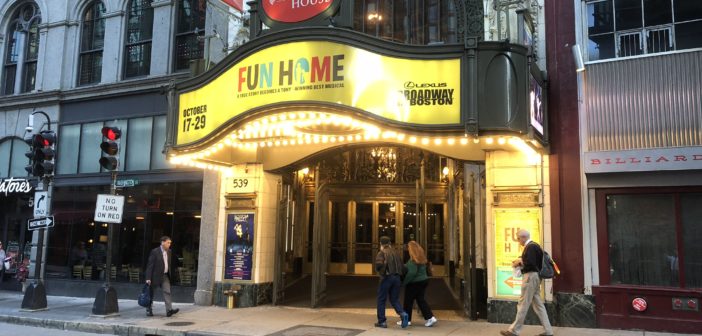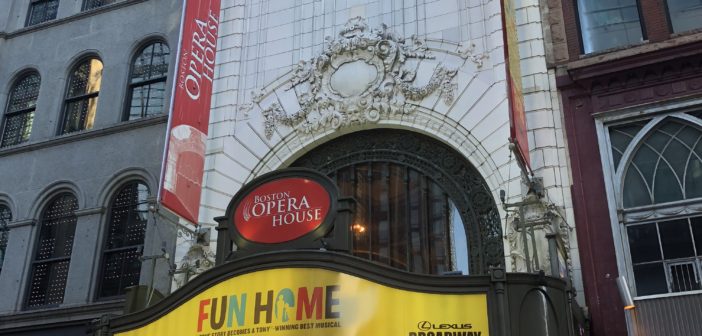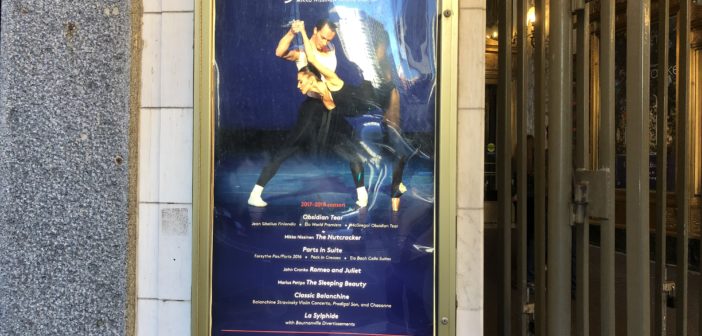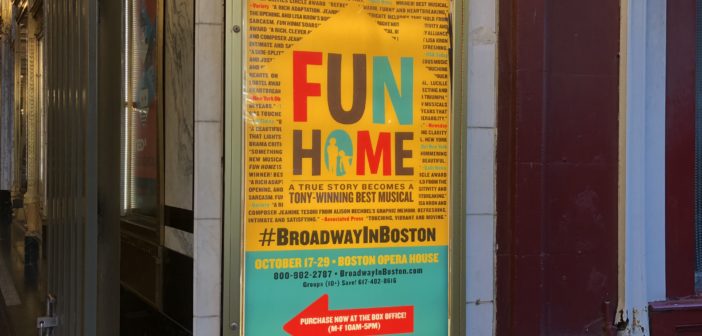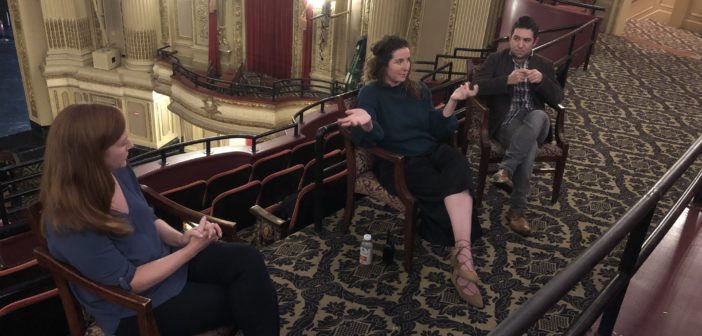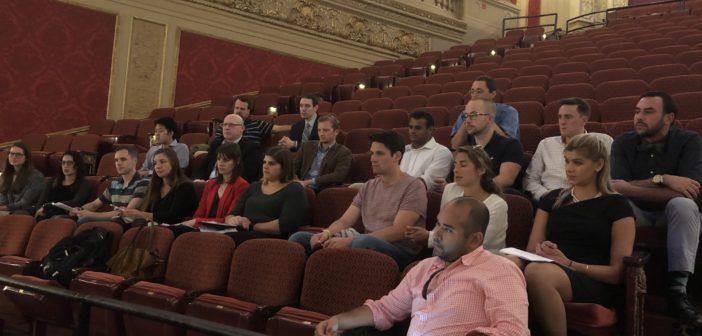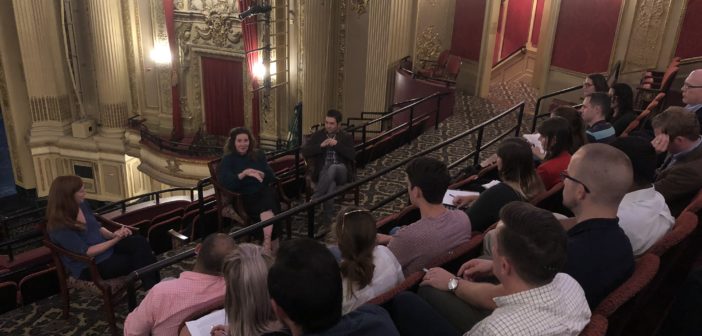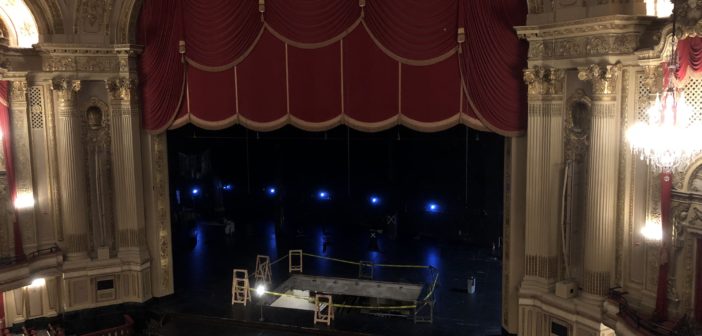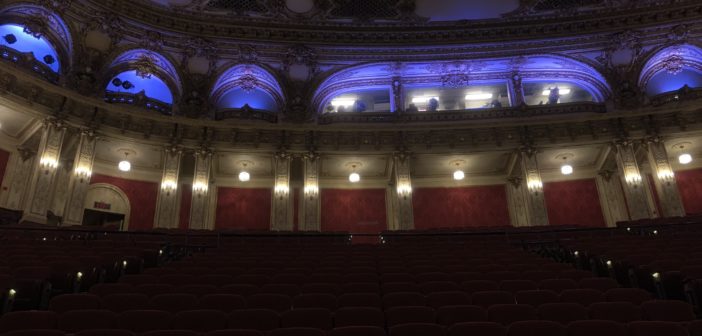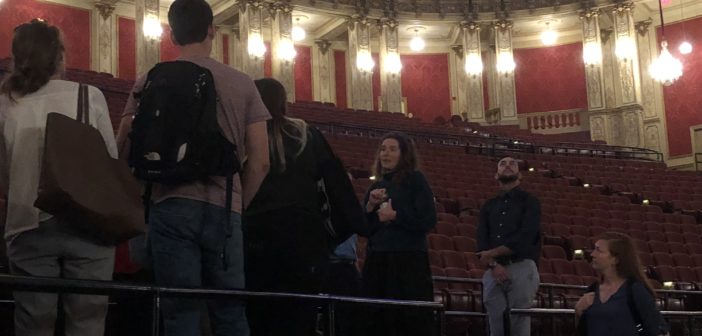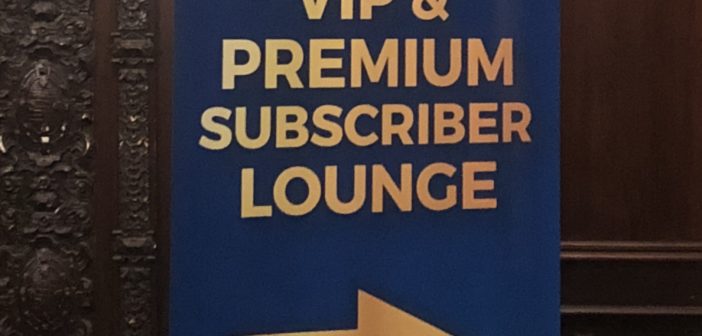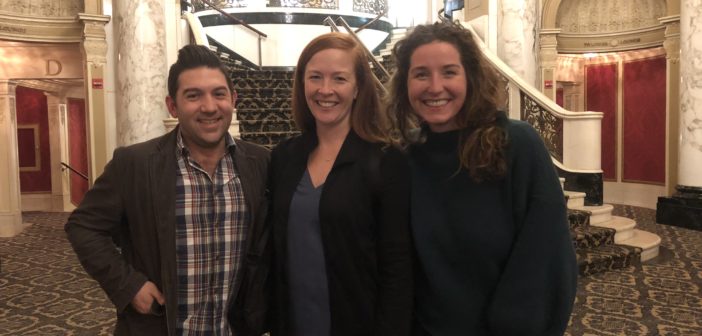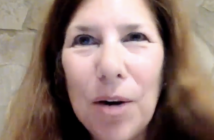Business of Theatre: Questrom Visit to Boston Opera House
Many thanks to Maggie Doyle, Kirsten Leonard, and Chris Mahan for hosting us tonight at the Boston Opera House to discuss the business of theatre. It was a fascinating evening for my MBA Entrepreneurship class to discuss for profit vs. non profit businesses, artistic merit vs. break-even cash flow and business development strategies involved with the arts. We discussed a case study followed by a panel discussion and a tour of the Boston Opera House.
Check out the pics below.
Thanks again to Maggie, Kirsten and Chris for their time.
Here’s a brief history, from this web site:
The Boston Opera House (originally known as the B. F. Keith Memorial Theatre) is one of the finest examples of the vaudeville circuit palace at the pinnacle of its development. Designed in a combination of French and Italian styles by Thomas White Lamb, one of the foremost theatre architects of his day, it was erected under the close personal supervision of Edward Franklin Albee (1857-1930 and great-grandfather of the playwright of the same name) to memorialize his late partner, Benjamin Franklin Keith (1846-1914). Because it was constructed as a memorial and tribute to vaudeville’s greatest impresario, it was built with a degree of luxury in its appointments that is almost unrivalled.
The building permit was issued on December 3, 1925, but demolition of B. F. Keith’s Boston Theatre to clear the building site delayed construction for nearly a year. Construction was well-advanced when the cornerstone was laid on August 25, 1927, and the inaugural program took place on October 29, 1928. The opening was attended by many theatrical luminaries, among them George M. Cohan, Lew Fields, Joe Weber, Fred Stone, Maggie Cline, Al Jolson, Julia Arthur Cheney, May Irwin, Raymond Hitchcock, James McIntyre, Tom Heath, Will Cressey and Eddie Leonard. The Commonwealth of Massachusetts was represented by Governor Alvan T. Fuller, and Mayor Malcolm E. Nichols represented the City of Boston. Former Mayor James Michael Curley was also a guest of honor. The Radio-Keith-Orpheum organization which by that time owned the theatre was represented by the host of that great occasion, Edward F. Albee and by R. K. O. Board Chairman Joseph P. Kennedy.

